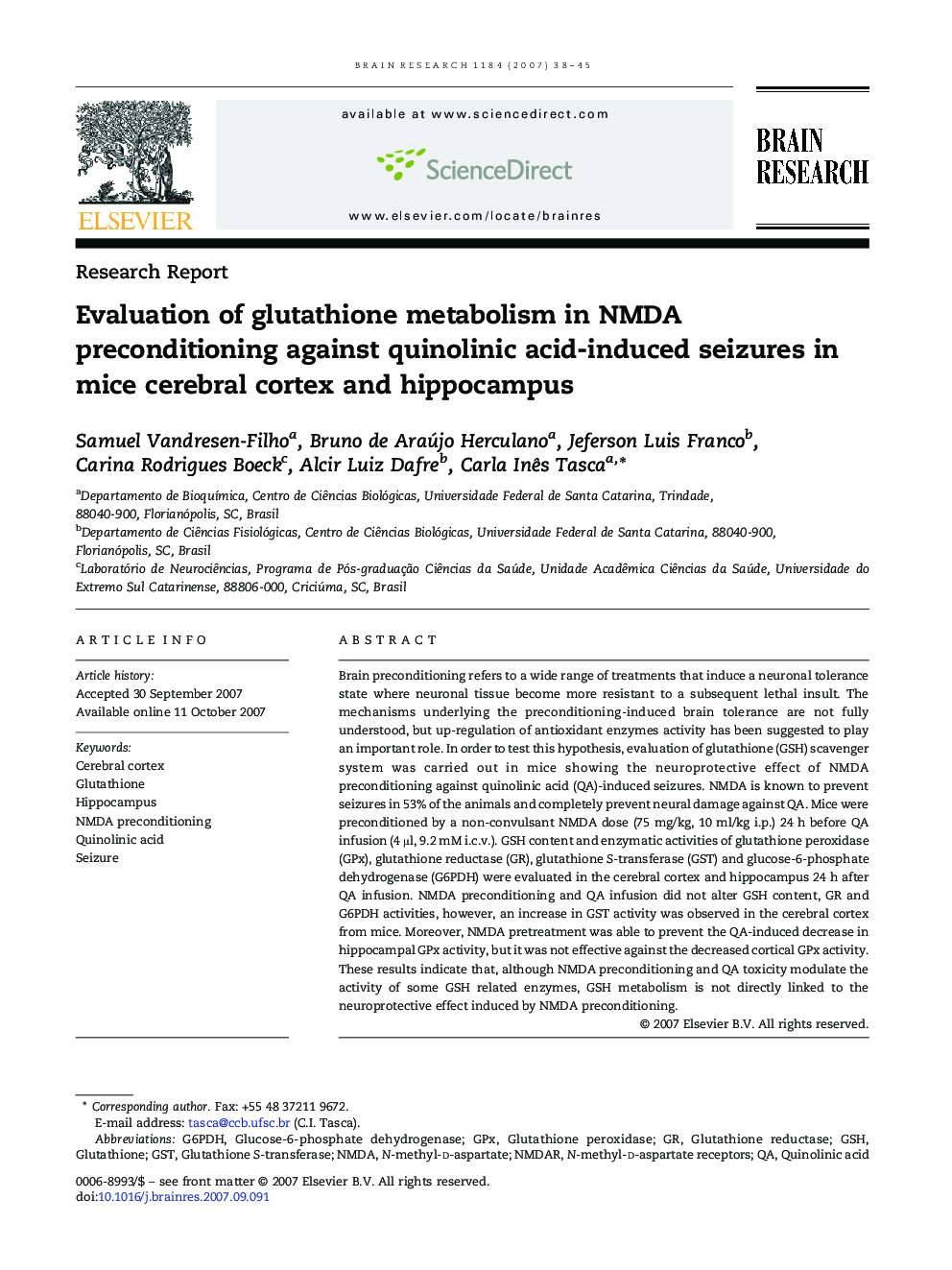| Article ID | Journal | Published Year | Pages | File Type |
|---|---|---|---|---|
| 4330335 | Brain Research | 2007 | 8 Pages |
Brain preconditioning refers to a wide range of treatments that induce a neuronal tolerance state where neuronal tissue become more resistant to a subsequent lethal insult. The mechanisms underlying the preconditioning-induced brain tolerance are not fully understood, but up-regulation of antioxidant enzymes activity has been suggested to play an important role. In order to test this hypothesis, evaluation of glutathione (GSH) scavenger system was carried out in mice showing the neuroprotective effect of NMDA preconditioning against quinolinic acid (QA)-induced seizures. NMDA is known to prevent seizures in 53% of the animals and completely prevent neural damage against QA. Mice were preconditioned by a non-convulsant NMDA dose (75 mg/kg, 10 ml/kg i.p.) 24 h before QA infusion (4 μl, 9.2 mM i.c.v.). GSH content and enzymatic activities of glutathione peroxidase (GPx), glutathione reductase (GR), glutathione S-transferase (GST) and glucose-6-phosphate dehydrogenase (G6PDH) were evaluated in the cerebral cortex and hippocampus 24 h after QA infusion. NMDA preconditioning and QA infusion did not alter GSH content, GR and G6PDH activities, however, an increase in GST activity was observed in the cerebral cortex from mice. Moreover, NMDA pretreatment was able to prevent the QA-induced decrease in hippocampal GPx activity, but it was not effective against the decreased cortical GPx activity. These results indicate that, although NMDA preconditioning and QA toxicity modulate the activity of some GSH related enzymes, GSH metabolism is not directly linked to the neuroprotective effect induced by NMDA preconditioning.
